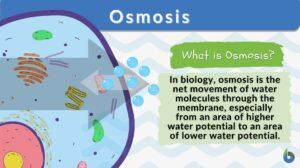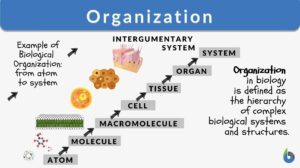Search Results for: osmoregulation
Osmoregulation
Definition noun The process of regulating water potential in order to keep fluid and electrolyte balance within a cell or... Read More
Homeostasis
Homeostasis is the tendency not to stray from the range of favorable or ideal internal conditions. Such conditions must be... Read More
Turgor pressure
In biology, turgor pressure pertains to the pressure that is exerted by the fluid (e.g. water) against the cell wall. It is... Read More
Contractile vacuole
Definition noun, plural: contractile vacuoles (cell biology) A specialized vacuole of eukaryote cells, especially protozoa,... Read More
Malpighian tubule
Definition noun, plural: Malpighian tubules A tubule extending from the interior (alimentary canal) to the exterior of many... Read More
Hypertonic
Hypertonic Definition Hypertonic is a term used to describe an entity being in the state of hypertonicity, where there is a... Read More
Homeostasis of Organism Water Regulation
Osmoregulation Osmoregulation is the regulation of water concentrations in the bloodstream, effectively controlling the... Read More
Animal Water Regulation
Homeostatic control, a set environment, and how evolution and natural selection drives a species to adapt to its environment... Read More
Hypotonic solution
Hypotonic Solution Definition What is a hypotonic solution? It refers to a solution that contains a lower amount of solute... Read More
Hypertonic solution
Hypertonic Solution Definition Hypertonic solution is a relative term that describes the solution having a higher amount of... Read More
Hypothalamus
Definition noun, plural: hypothalami A small region of the forebrain comprised of several small nuclei, located between the... Read More
Intracellular fluid
Definition noun The body fluid within the cell composed mainly of water dissolved ions, and other molecules Supplement The... Read More
The Conscious & Unconscious Nervous System
The Central Nervous System is arguably the most important part of the body because of the way it controls the biological... Read More
Plant Biology
Plantlife can be studied at a variety of levels, from the molecular, genetic and biochemical level through organelles,... Read More
Adaptation Tutorial
Adaptation, in biology and ecology, refers to the process or trait through which organisms or the populations in a habitat... Read More
Plant cell
Plant Cell Definition A plant cell refers to any cell of a plant. It is the structural and functional unit of plants. Plant... Read More
Animal cell
An animal cell is the fundamental functional unit of life of animals. It is also the basic unit of reproduction. Animal... Read More
Hypothalamic hormone
Definition noun, plural: hypothalamic hormones Any of the various neurohormones produced by specialized neurons in the... Read More
Dinoflagellate
A dinoflagellate is a flagellate algae characterized by their two flagella of unequal length. One of the flagella is lying... Read More
Endomembrane system
Ever wondered how biomolecules are made within the cell and then they are released outside the cell for use by the body?... Read More
Living things
Living Things Definition A living thing pertains to any organism or a life form that possesses or shows the characteristics... Read More
Equilibrium
Equilibrium Definition In Biology Equilibrium refers to the state of balance and stability. In biology, equilibrium is... Read More
Pituitary gland
Definition noun, plural: pituitary glands An endocrine gland situated off the bottom of the hypothalamus, and acts as the... Read More
Positive feedback
Positive Feedback Definition Each mechanism of the body like temperature, blood pressure, and levels of specific nutrients... Read More
Plasmolysis
Plasmolysis is the shrinking of protoplasm away from the cell wall of a plant or bacterium. The protoplasmic shrinking is... Read More
Osmotic pressure
Osmotic Pressure Definition Osmotic pressure is the pressure caused by a difference in the amounts of solutes (or... Read More
Organization
Organization Definition The meaning of the term "organization" is very simple. It means the state wherein things are... Read More





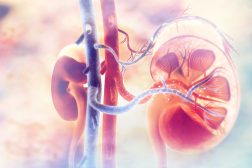



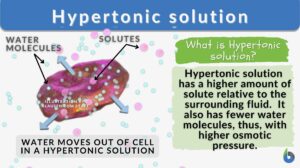






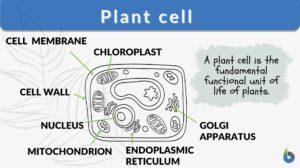





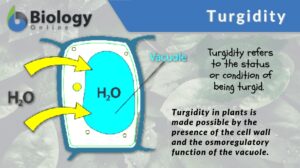

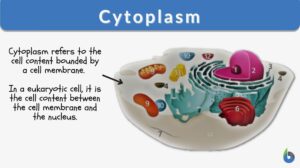
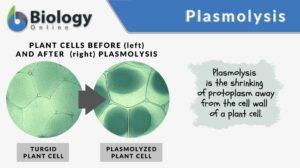
![Osmotic pressure n., plural: osmotic pressures [ɑsˈmɑtɪk ˈpɹɛʃ.ɚ] osmotic pressure definition and example](https://www.biologyonline.com/wp-content/uploads/2020/11/osmotic-pressure-definition-and-example-300x168.jpg)
